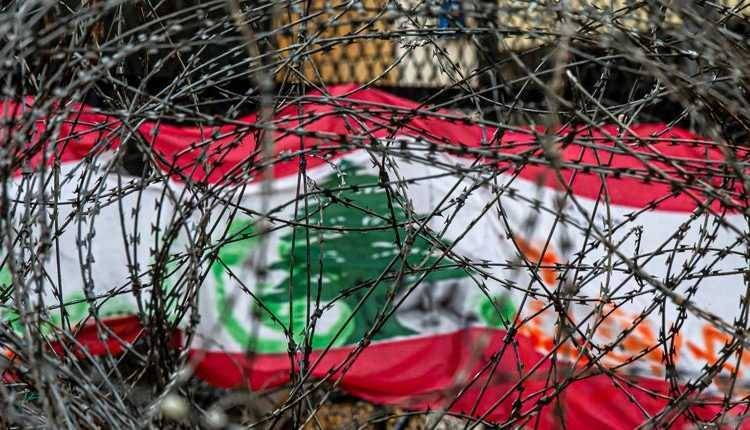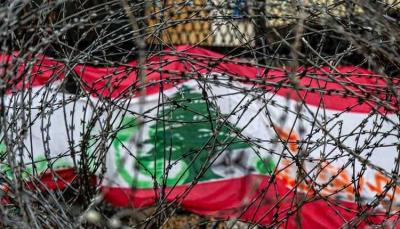While efforts are being made to initiate a presidential dialogue, starting with the initiative led by French presidential envoy Jean-Yves Le Drian on behalf of the quintet committee, followed by the recent call from House Speaker Nabih Berri for a seven-day presidential dialogue followed by consecutive parliament sessions to elect a president, these efforts have been accompanied by hopes for a positive outcome in the presidential situation. However, renewed divisions over the presidential file, as stated by responsible political sources to "Al-Jumhuriya," have opened the Lebanese horizon wide to the formation of dark clouds that could further obscure the presidential political horizon, perhaps even permanently.
According to information from "Al-Jumhuriya," the recent developments in this regard, especially the high-toned positions expressed by the head of the Lebanese Forces party, Samir Geagea, were not surprising to the other party. Instead, they were anticipated and within the range in which those positions were issued. Contrary to what has been circulating among elements that label themselves as "sovereign," that Berri's initiative is a failure in timing, form, and content, supporters of this initiative believe it "has exposed the obstructers and revealed who truly wants to elect a president and who wants the country to remain in crisis, opposing anyone who calls for dialogue and consensus, as seen in the objections raised against the latest stance of Maronite Patriarch Bechara al-Rahi."
In this context, it is noteworthy to mention the significant timing of the visit by the Saudi ambassador to Lebanon, Walid Bukhari, to Patriarch al-Rahi in Diman, where there was discussion regarding the presidential election and the necessity of accomplishing it as quickly as possible to help rescue Lebanon and unite all Lebanese and strengthen relationships with its surroundings.
In this context, reliable sources confirmed to "Al-Jumhuriya" that Berri's initiative, despite the tension shown by the Lebanese Forces Party and some parties from what is called the sovereignty team, is still valid, and in the coming days, the next step from President Berri will certainly be witnessed in connection with his initiative.
On the opposite side of the presidential crisis, two other concerns are on the minds of the Lebanese people. The first is the hidden danger in the Palestinian camps, particularly in the Ain al-Hilweh camp. Security sources informed "Al-Jumhuriya" that "the indicators are not reassuring, as the aftermath of the recent tensions have not yet dissipated amid the procrastination occurring in this regard, leaving the situation in the camp seemingly on the brink."
The second concern manifests in what the same sources termed "the influx of Syrian refugees into Lebanon." This further exacerbates the dangers of this ticking time bomb that threatens Lebanon's existence. The sources confirmed that strict measures must be taken by Lebanon and Syria to prevent this dangerous influx, noting in this context recent army statements indicating that thousands of attempts by Syrians to cross into Lebanon have been thwarted. They said: "If thousands of attempts have been thwarted, how many successful attempts could there be? We do not rule out that they could also be in the thousands."
Additionally, regarding the recent displacement issue, Minister of Displaced Persons Issam Sharafeddine told "Al-Jumhuriya": "As the Lebanese government, we are sluggish in finding a fundamental solution, which requires sending an official delegation to Syria once, twice, or three times, establishing a protocol, and signing return and border protection agreements. The steps taken last week were security measures due to a new, unjustified influx, which is dangerous and alarming and cannot be overlooked; otherwise, more than a million new refugees could enter. Hence, there was a meeting with President Najib Mikati, the Secretary-General of the Supreme Defense Council, and the acting Director-General of General Security, where I proposed controlling the borders, dismantling the networks that trade in immigration and smuggling, and informing every Lebanese harboring an illegal new refugee that they would face penalties."
Regarding the party responsible, Sharafeddine said: "The responsibility lies with the organized networks, and above all, we need a serious political decision and coordination between the Lebanese and Syrian governments and direct communication at the highest levels." Sharafeddine concluded: "The army is fulfilling its duties, but a fundamental decision must be made."




